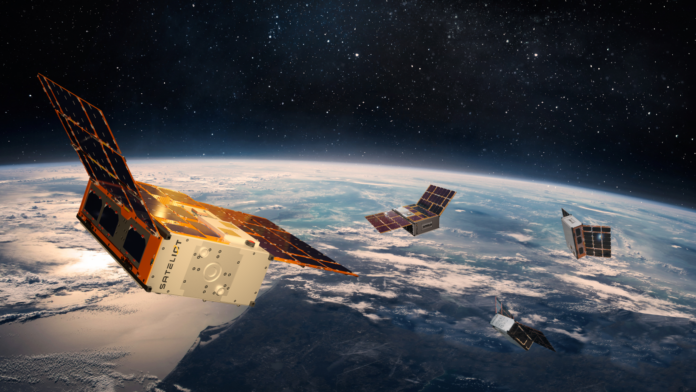Barcelona-based satellite IoT provider Sateliot has raised €10 million from venture capital group Global Portfolio Investments as part of a continuing €30 million Series-B funding round, as covered here, which has also seen interest from IT and defense firm Indra Sistemas, telecoms tower company Cellnex, and Sociedad de Participaciones Industriales (SEPI) Desarrollo Empresarial (SEPIDES), a Spanish business group belonging to SEPI. The money will go to expand Sateliot’s NB-IoT constellation; it wants 100 satellites by 2028. All the investors are Spanish.
SEPI is a state holding company, described as a sovereign wealth fund, controlled by the Spanish Ministry of Finance. The quartet form a “core group of national shareholders” in the fledgling business, which is building an NB-IoT satellite constellation based on Release-17 specifications in the 5G NR standard. Sateliot wants to attract investors from elsewhere, too. “Sateliot… has a significant international reach, which strengthens [its] decision to promote a national project with strong support in Europe and the rest of the world,” the company said.
It explained: “Global Portfolio Investments becomes the lead investor in the Series B [round], which amounts to €30 million. It is also one of the company’s main shareholders, with more than 10 percent – following the capital increase recently approved by Sateliot at its general shareholders’ meeting… [Global Portfolio Investments] is characterised by taking positions in companies with a long-term vision… [which is] a powerful message… for the rest of the investors in venture capital business groups and the space sector interested in entering the Series B.
Sateliot has previously raised €25 million since its foundation in 2019. It said “more than a half [of this total] corresponds to 2023”, when Banco Santander was a headline investor with a €6 million injection. Sateliot wants to be in position to offer “global coverage in real time” in 2028, via 100-odd NB-IoT equipped satellites. It is targeting the agricultural, industrial, and logistics sectors, among others. The company launched four low-Earth orbit (LEO) nanosatellites on a SpaceX mission in August, readying it for commercial operations, it said at the time.
It said it will “provide service” in the first quarter 2025, and thereby start to generate annual recurring revenue. It reckons “more than 400 clients in more than 50 countries” have already “contracted” the firm to connect eight million devices, worth more than €250 million. It said it aims to invoice €500 million in 2027 and €1 billion in 2030. The firm has a virtualized cloud-native 5G core for its NB-IoT satellite service, courtesy of a deal with AWS, signed towards the back-end of 2022.
It wants to wholesale satellite NB-IoT as a roaming extension for terrestrial operators. Telefonica has been trialling the service. It said in February it is working with Swedish power grid firm Sentrisense to use satellite IoT service for electric grid sensors. It also has a notable deal in the bag with freight software and analytics company t42 to deploy “thousands of 5G-IoT sensors” in shipping containers for “more than 50 logistics partners across over 50 countries”.
Jaume Sanpera, co-founder and chief executive at Sateliot, said: “This investment represents a huge boost for the company and sends a message of confidence to other investors interested in our company so that they can join our project. It also represents a decisive step in continuing to advance in our strategy of having the constellation deployed and meeting our financial objectives.”

